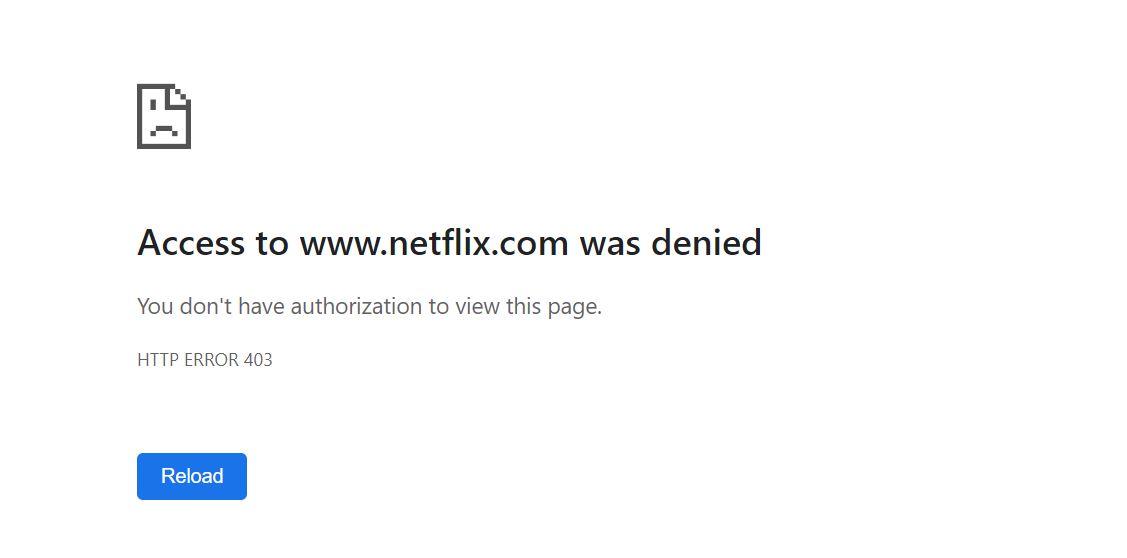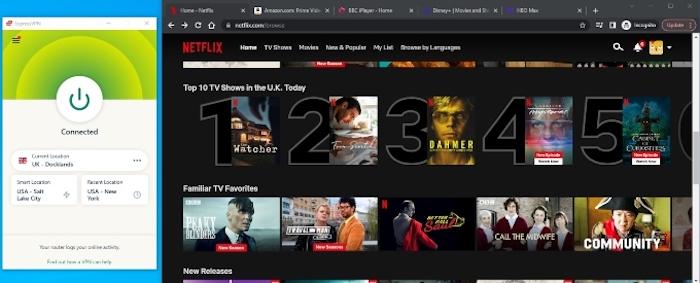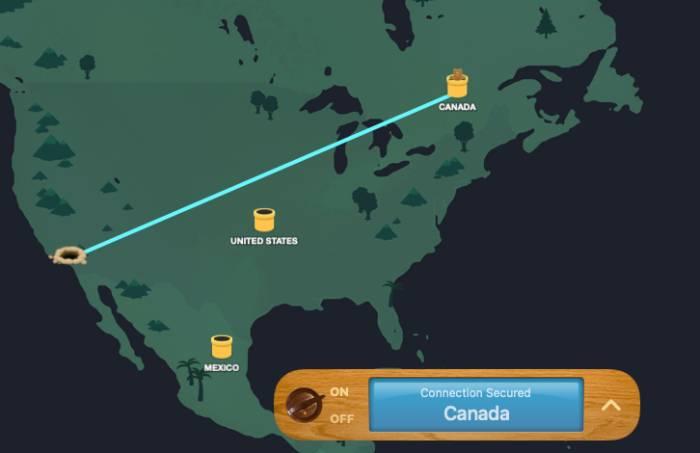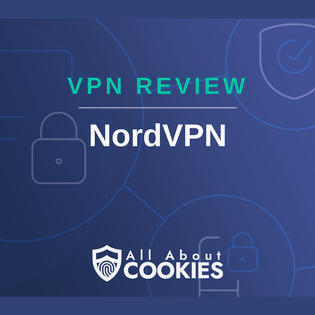Advertiser Disclosure
All About Cookies is an independent, advertising-supported website. Some of the offers that appear on this site are from third-party advertisers from which All About Cookies receives compensation. This compensation may impact how and where products appear on this site (including, for example, the order in which they appear).
All About Cookies does not include all financial or credit offers that might be available to consumers nor do we include all companies or all available products. Information is accurate as of the publishing date and has not been provided or endorsed by the advertiser.
Editorial Policy
The All About Cookies editorial team strives to provide accurate, in-depth information and reviews to help you, our reader, make online privacy decisions with confidence. Here's what you can expect from us:
- All About Cookies makes money when you click the links on our site to some of the products and offers that we mention. These partnerships do not influence our opinions or recommendations. Read more about how we make money.
- Partners are not able to review or request changes to our content except for compliance reasons.
- We aim to make sure everything on our site is up-to-date and accurate as of the publishing date, but we cannot guarantee we haven't missed something. It's your responsibility to double-check all information before making any decision. If you spot something that looks wrong, please let us know.
Best for Bandwidth-Heavy Activities
-
Has a wide range of servers in 94 countries
-
Provides 24/7 support through live chat and email
-
Only allows you to connect five devices at once
Best for Anonymous Browsing on a Budget
-
Has a free VPN plan
-
Allows for unlimited simultaneous connections
-
Was incapable of sidestepping network blocks for nearly all streaming platforms
Searching for the perfect virtual private network (VPN) service that is right for you can feel like you have to “grin and bear it,” especially when you're trying to strike a balance between speed, cost, advanced features, and torrenting or streaming capabilities. That's why we decided to pit two popular VPN services against each other in a match-up: ExpressVPN vs. TunnelBear.
ExpressVPN emerged as the top choice for users seeking a wide range of server locations and the ability to unblock streaming restrictions. On the other paw, TunnelBear is a great fit for users seeking an affordable VPN that is simple and packaged in a cute, user-friendly interface.
We'll dive deep into the grizzly details of ExpressVPN and TunnelBear to help you decide which VPN is the right fit for you.
ExpressVPN vs. TunnelBear: prices
ExpressVPN vs. TunnelBear: features
ExpressVPN vs. TunnelBear: internet speeds
ExpressVPN vs. TunnelBear: compatibility and ease of use
ExpressVPN vs. TunnelBear: customer service
ExpressVPN vs. TunnelBear FAQs
ExpressVPN vs. TunnelBear: which is better?
ExpressVPN vs. TunnelBear at a glance
Both ExpressVPN and TunnelBear have unique strengths in the VPN arena. ExpressVPN boasts an extensive range of server locations, excels at bypassing network blocks on various streaming platforms, and provides robust security features coupled with 24/7 customer support.
In contrast, TunnelBear offers military-grade security suitable for simple online activities, wallet-friendly pricing, and an adorable user interface. It even has a free version with limited data for users who want to save money on a VPN and prefer to dip their toes in before taking the plunge.
- ExpressVPN: Best for bandwidth-heavy activities
- TunnelBear: Best for anonymous browsing on a budget
How do ExpressVPN and TunnelBear compare?
 ExpressVPN ExpressVPNOur Pick
|
 TunnelBear TunnelBear
|
|
| Price | Starts at $6.67/mo | Starts at $3.33/mo |
| Max # of connected devices | 8 | Unlimited |
| 24/7 customer support | ||
| Compatibility | Windows, macOS, Linux, Android, iOS, and more | Windows, macOS, Android, iOS, and more |
| # of server countries | Servers in 94 countries | 40+ |
| VPN protocol | Lightway, OpenVPN, IKEv2/IPsec, L2TP/IPsec | WireGuard, OpenVPN, IKEv2/IPsec |
| No-logs policy | No logs | No logs |
| Unblocks Netflix? | Yes — U.S. only | |
| Get ExpressVPN | Read TunnelBear Review |
ExpressVPN and TunnelBear offer different pricing options for users. ExpressVPN starts at almost $7 per month, while TunnelBear is more affordable, starting at about $3 per month. Additionally, TunnelBear offers a free VPN plan, which ExpressVPN does not. In terms of customer support, ExpressVPN provides 24/7 support through live chat and email, while TunnelBear only offers email support and a knowledge base.
TunnelBear also has the edge when it comes to the number of connected devices, offering unlimited simultaneous connections. ExpressVPN only allows up to five devices at once. But when comparing server locations, ExpressVPN has a wider range with servers in 94 countries, while TunnelBear has servers in over 40 locations.
As for security, both utilize secure and fast VPN protocols. ExpressVPN supports Lightway, OpenVPN, IKEv2/IPsec, L2TP/IPsec, and WireGuard, while TunnelBear supports WireGuard, OpenVPN, and IKEv2/IPsec. Both VPNs have no-logs policies that have been audited as well.
Overall, ExpressVPN offers more comprehensive features and broader compatibility, but TunnelBear is a more affordable option (that even includes a free VPN plan), and it provides unlimited device connections.
ExpressVPN vs. TunnelBear: prices
| ExpressVPN | TunnelBear Our Pick
|
|
| Price range | $6.67–$12.95/mo | $3.33-$9.99/mo |
| Best value plan | 12-month plan for $6.67/mo | 3-year plan for $3.33/mo |
| Money-back guarantee | Yes — 30 days | No — refunds are provided on a case-by-case basis |
| See ExpressVPN's Full Pricing Details | Read TunnelBear Review |

Based on the table above, it is clear that TunnelBear has a competitive edge because it has lower costs than ExpressVPN. You can even opt for a free TunnelBear plan with 2 GB of data, while ExpressVPN does not offer any free plans.
ExpressVPN, on the other hand, offers more advanced features and can bypass more restrictions on various streaming platforms than TunnelBear does. This can justify its higher monthly cost for a 12-month plan compared to TunnelBear, which is $4.99/mo for a 12-month plan.
When it comes to offering money-back guarantees, ExpressVPN provides a 30-day money-back guarantee, making it a great choice for new users who want to test a VPN service before fully committing to an annual plan. Sadly, TunnelBear does not offer a money-back guarantee for its plans and only provides refunds on a case-by-case basis. (We can bear-ly handle it.)
ExpressVPN vs. TunnelBear: features
| Feature | ExpressVPN Our Pick |
TunnelBear |
| Number of server countries | Servers in 94 countries | 40+ locations |
| No-logs policy | No logs | No logs |
| VPN headquarters | British Virgin Islands | Toronto, Canada |
| Encryption | AES-256 bit encryption | AES-256-GCM bit encryption |
| VPN protocol | Lightway, OpenVPN, IKEv2/IPsec, L2TP/IPsec | WireGuard, OpenVPN, IKEv2/IPsec |
| Kill switch | ||
| Split tunneling | ||
| Netflix support | Yes — U.S. only | |
| Torrenting support | ||
| Smart DNS | ||
| Blocks trackers | Yes — for Chrome | |
| Get ExpressVPN | Read TunnelBear Review |
After evaluating ExpressVPN vs. TunnelBear, we found that both performed well for simple online activities such as browsing the web, checking email, messaging, and using social media. Their speeds were also comparable when we tested their servers in the U.S., Australia, the U.K., and Canada.
However, ExpressVPN emerged as the more powerful VPN service overall due to its larger server network and a plethora of features that make it ideal for streaming, gaming, and torrenting. Some of ExpressVPN's standout features include split tunneling, a kill switch, private DNS, bank-grade encryption, and its secure proprietary lightweight VPN protocol, Lightway.
Additionally, ExpressVPN has a no-logs policy that is routinely audited (the most recent audit was completed in late 2022 by KPMG and Cure53) and is more adept at bypassing network blocks for streaming services like Netflix than TunnelBear.
TunnelBear employs AES-256-GCM encryption for stronger security than AES-256 and it supports fast and lightweight protocols like WireGuard, OpenVPN, and IKEv2/IPSec. It also offers a kill switch (known as VigilantBear), split tunneling (known as SplitBear), and a tracker blocker as an add-on for Chrome.
Unfortunately, TunnelBear's no-logs policy was last audited in 2021, which is much less recent than ExpressVPN's latest audit in late 2022. It also falls short in its ability to unblock restrictions on various streaming services (Netflix only worked with its U.S. servers), an area in which ExpressVPN excels.
Despite its shortcomings, we give it an “A” when it comes to design and appearance since every time you connect to a server, a bear pops out of a pipe-like pot. It also lets you select various themes and styles of icons, and a couple of them are LGBTQ- and trans-friendly, which we’ve never seen in a VPN service before.

ExpressVPN vs. TunnelBear: streaming support
| Platform | ExpressVPN Our Pick
|
TunnelBear |
| Netflix | Yes — U.S. only | |
| Amazon Prime Video | ||
| Hulu | ||
| BBC iPlayer | ||
| Disney+ | ||
| HBO Max |
When we put ExpressVPN and TunnelBear to the test to see whether or not they could support streaming, ExpressVPN was clearly the winner thanks to its extensive network of servers around the world.
Sadly, TunnelBear was incapable of sidestepping network blocks for nearly all streaming platforms except for Netflix in the U.S. When we tried to access Netflix from servers in the U.K., Australia, and Canada, TunnelBear struggled to bypass restrictions for nearly all streaming platforms and didn’t stand a chance.

Although ExpressVPN didn’t flawlessly access all streaming services from each server location we tested, it was able to access Netflix from servers in the U.S. and Australia (but not in Canada or the U.K.). We were also able to access Amazon Prime Video and HBO Max from the U.S. and the U.K., but not in Australia or Canada.

Hulu is available in the U.S. only, and BBC iPlayer could only be accessed when connected to a server in the U.K. Disney+ displayed the message, "It looks like you are traveling," when accessed from various server locations, which was an interesting find.
ExpressVPN vs. TunnelBear: internet speeds
We tested the internet speeds of ExpressVPN and TunnelBear to determine if they were fast enough to support streaming, gaming, and torrenting. For our tests, we used a 2017 MacBook Pro running on the latest macOS Ventura v13.3.1 from Los Angeles, California. We tested each VPN service from the U.S. connecting to other U.S. servers as well as servers in the U.K., Canada, and Australia.
TunnelBear demonstrated the quickest download speeds with its U.K. server, achieving 104.32 Mbps download speed and an upload speed of 15.49 Mbps when connected to a server in the U.S. However, ExpressVPN had the lowest latency (ping) at 45 ms when connected to its U.S. server. Overall, there wasn't a significant difference when comparing speeds for both VPNs, indicating that either option would be suitable for most online activities.
ExpressVPN vs. TunnelBear speed test results
| Server location | ExpressVPN Our Pick
|
TunnelBear |
| US |
|
|
| Canada |
|
|
| UK |
|
|
| AU |
|
|
| Get ExpressVPN | Read TunnelBear Review |
When evaluating speed test results, it’s important to consider not only download and upload speeds but also latency speeds. Latency, also known as “ping,” refers to the time it takes for data to travel from your device to a server (which it pings) and back. It is an important factor to consider because it can reveal if your VPN experience will be smooth and suitable for online activities that require speed without lag, such as streaming, gaming, torrenting, or even video and audio calls.
Low latency means it takes less time for your data to travel from your device to the destination server. A high latency indicates slow travel of data, which can result in sluggish performance when streaming, gaming, torrenting, or joining video and audio calls.
ExpressVPN and TunnelBear’s speed test results had minor differences in their download and upload speeds across various server locations. However, ExpressVPN stood out with lower latency compared to TunnelBear, with a latency of 45 ms when connected to its U.S. server.
Although neither VPN demonstrated a significant difference in speeds or extremely high latency, ExpressVPN’s lower latency indicates that it is a more suitable option for streaming, gaming, torrenting, or video and audio calls.
ExpressVPN vs. TunnelBear latency comparison
| Server location | ExpressVPN Our Pick
|
TunnelBear |
| US | 45 ms | 49 ms |
| Canada | 91 ms | 183 ms |
| UK | 181 ms | 185 ms |
| AU | 183 ms | 181 ms |
ExpressVPN vs. TunnelBear: compatibility and ease of use
| ExpressVPN | TunnelBear | |
| Windows | ||
| macOS | ||
| Android | ||
| iOS | ||
| Linux | ||
| Router | ||
| Smart devices |
Both ExpressVPN and TunnelBear offer user-friendly interfaces across various platforms, including Windows, macOS, Android, and iOS, and have limited support for Linux. They were both easy to install, and their user interfaces (UI) were intuitive and a breeze to navigate. TunnelBear had a more attractive UI, though, with its cuddly, cute design. ExpressVPN stands out when it comes to compatibility with a wider range of devices, including routers, smart devices, and gaming consoles like PlayStation and Xbox.
ExpressVPN's compatibility with routers and smart devices allows users to secure multiple devices simultaneously and enjoy the VPN's benefits on equipment that may not have native VPN support. Other devices and browsers not listed on the table are supported as well; ExpressVPN for Chromebook is available and works with the ExpressVPN app for Android. It also has browser extensions for Microsoft Edge, Google Chrome, Mozilla Firefox Brave, and Vivaldi.
TunnelBear, on the other hand, lacks router and smart device compatibility, limiting its usability to a certain extent. However, for users who don't require VPN support on such devices, TunnelBear's interface is still easy to use and navigate. We also appreciate that TunnelBear offers Linux support as well.

ExpressVPN vs. TunnelBear: customer service
| ExpressVPN Our Pick
|
TunnelBear | |
| 24/7 live chat | ||
| Phone | ||
| Support forums | ||
| Online guides |
ExpressVPN offers 24/7 customer service via live chat and email. Many of its users have reported a great experience with its customer service.[1] Additionally, it has comprehensive guides for troubleshooting in its support center and its blog.
Meanwhile, TunnelBear lacks 24/7 live chat and phone support; it can only be contacted by email, which could make it difficult for users to get immediate assistance. However, they do have a knowledge base, which users can access to find answers to their questions.
ExpressVPN vs. TunnelBear: payment options
ExpressVPN offers a variety of payment options, including credit cards, PayPal, and cryptocurrency for added privacy. The option to pay with cryptocurrency ensures that users can maintain their anonymity to a greater extent.
TunnelBear has more limited options for payment, which include credit card and Link support but no cryptocurrency options. Interestingly, they also accept jars of honey as a payment method, (which we are sure Pooh Bear would love).
ExpressVPN payment options
- Credit cards (Visa, Mastercard, American Express, etc.)
- PayPal
- bitcoin
- UnionPay, iDeal, QIWI, and more
TunnelBear payment options
- Credit cards (Mastercard, Visa, American Express)
- Jars of honey (yes, it literally says that)
ExpressVPN vs. TunnelBear FAQs
Is ExpressVPN still trustworthy?
Yes, ExpressVPN is a popular VPN service that is often recommended for being trustworthy. It has a strict no-logs policy that has been verified and is routinely audited.
Can I use TunnelBear to torrent?
No, TunnelBear torrent support doesn’t seem available since it lacks P2P servers and SOCKS5 proxy.
What is ExpressVPN’s refund policy?
ExpressVPN offers a 30-day money-back guarantee, which allows you to request a refund within the first 30 days should you be dissatisfied with their VPN service.
How long is TunnelBear free?
TunnelBear's free plan is available for as long as you use it, offering 2 GB of data per month.
ExpressVPN vs. TunnelBear: which is better?
ExpressVPN is a VPN provider that can impress with its ability to bypass network blocks from major streaming platforms, extensive server coverage, a plethora of advanced features for security and privacy, lower latency speeds, 24/7 customer support, and versatile payment options including cryptocurrency.
TunnelBear is a better choice if you’re seeking an affordable VPN option for basic online needs with a user-friendly interface that is as cute as a teddy bear. However, it falls short when it comes to unblocking streaming services, router and smart device compatibility, and customer support. Additionally, TunnelBear is limited in accepting various payment options (like cryptocurrency), which can deter ultra-private users.
-
Premium VPN offering strong security and ultra-fast speeds
-
Strict no-logs policy with independent audit
-
In-house Lightway protocol for more speed and security
-
More expensive than NordVPN, Surfshark, and CyberGhost







